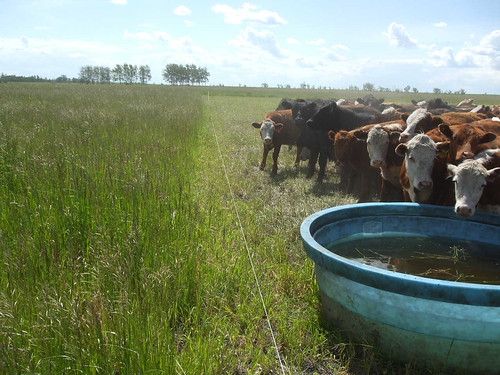 Abstract: The need for the adoption of innovation in weed management seems obvious in agriculture where significant economic issues arise in relation to 'problem' weeds. When a farmer has a problem with weeds, who is he or she going to ask for help? Most weed experts I know assume that the needs of the farmer are related to the weed species and refer them to information about the weed and which chemicals can be used to kill it. The farmer, however, is running a business and his or her needs are related to the profitability and sustainability of the enterprise as a whole. The farmer has questions that relate to how to make money from managing the farm as a whole. Information on how to kill a weed with herbicide may have little relevance to making money in this context, indeed, such advice might make the situation worse for the farmer, both from an economic and an environmental point of view. By only considering a list of chemicals supplied by an agricultural adviser, the farmer will only be getting advice that maximises profit for the chemical supplier. Such advice may not be the kind of advice that maximises profitability for the farmer, especially in the long-term. For example, if the advice is to knock down or 'terminate' a weedy cover crop with herbicide instead of using the cover crop for fodder, the chemical supplier will profit and the farmer will miss out on an important economic opportunity. [Photo: Holisically managed cattle at Eggers Farm , USA]
Abstract: The need for the adoption of innovation in weed management seems obvious in agriculture where significant economic issues arise in relation to 'problem' weeds. When a farmer has a problem with weeds, who is he or she going to ask for help? Most weed experts I know assume that the needs of the farmer are related to the weed species and refer them to information about the weed and which chemicals can be used to kill it. The farmer, however, is running a business and his or her needs are related to the profitability and sustainability of the enterprise as a whole. The farmer has questions that relate to how to make money from managing the farm as a whole. Information on how to kill a weed with herbicide may have little relevance to making money in this context, indeed, such advice might make the situation worse for the farmer, both from an economic and an environmental point of view. By only considering a list of chemicals supplied by an agricultural adviser, the farmer will only be getting advice that maximises profit for the chemical supplier. Such advice may not be the kind of advice that maximises profitability for the farmer, especially in the long-term. For example, if the advice is to knock down or 'terminate' a weedy cover crop with herbicide instead of using the cover crop for fodder, the chemical supplier will profit and the farmer will miss out on an important economic opportunity. [Photo: Holisically managed cattle at Eggers Farm , USA]Making Money with Weeds Final 1.ppsx